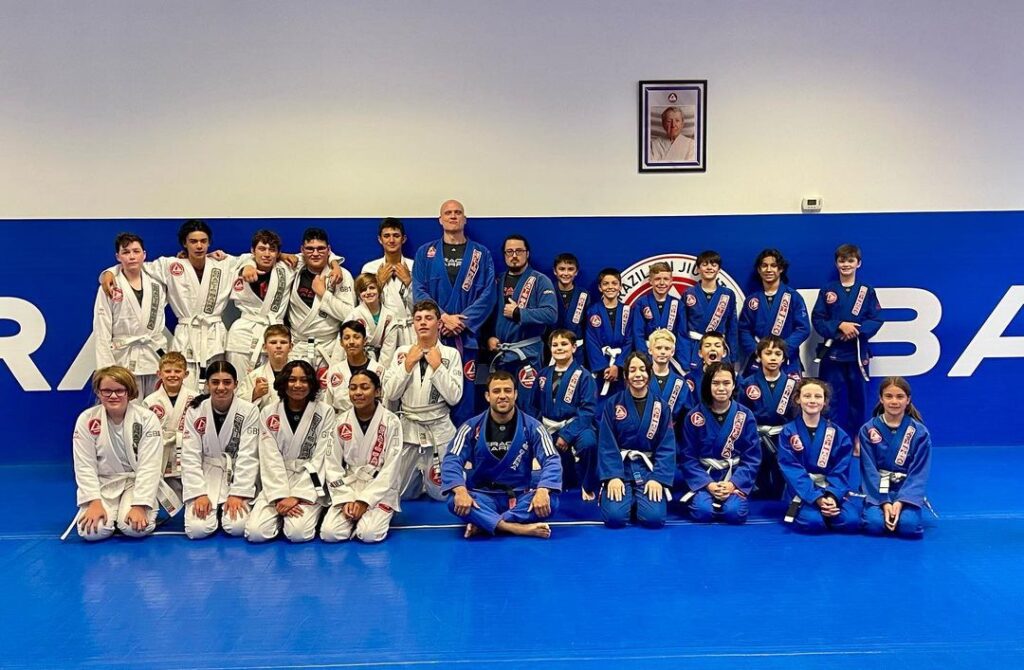Jiu-Jitsu, a martial art originating in Japan and perfected in Brazil, has stood out not only as an effective form of self-defense but also as a valuable tool in the physical and emotional development of children and adolescents. In this article, we will explore the benefits of Jiu-Jitsu for this age group, highlighting how practicing this martial art can contribute to the healthy and holistic growth of young individuals.

Physical Development:
Jiu-Jitsu is a comprehensive physical activity, involving aspects such as strength, endurance, flexibility, and motor coordination. For children and adolescents, regular practice of this martial art can contribute to muscular development, promoting bone health, and strengthening the cardiovascular system. Moreover, Jiu-Jitsu training improves fine and gross motor coordination, essential for motor development during childhood and adolescence.
Discipline and Respect:
The hierarchical structure and codes of conduct present in Jiu-Jitsu help cultivate essential values such as discipline and respect from an early age. Students learn to follow rules, respect their instructors and training peers, developing valuable social skills that transfer to other aspects of their lives.
Emotional Development:
The practice of Jiu-Jitsu also offers significant benefits for the emotional well-being of children and adolescents. The promotion of emotional self-regulation is an intrinsic part of the training, helping young individuals deal with stress, anxiety, and frustration constructively. Overcoming challenges during training and gradually building skills contribute to the development of self-confidence and resilience.
Focus and Concentration:
Jiu-Jitsu requires a high level of concentration and focus during training. For children and adolescents, consistent practice of this martial art can improve concentration ability, developing mindfulness. This skill is transferable to the classroom and other daily activities, providing academic and personal benefits.
Conflict Resolution Skills:
Jiu-Jitsu is a martial art that emphasizes resolving conflicts in a non-violent manner. Practitioners learn to control and neutralize adverse situations through technique and strategy, rather than brute force. This approach contributes to the development of interpersonal skills and the ability to resolve conflicts peacefully.
Self-Defense and Combatting Bullying:
One of the most prominent aspects of Jiu-Jitsu is its effectiveness as a self-defense system. For children and adolescents, this skill can translate into increased confidence and a sense of security. Self-defense training in Jiu-Jitsu not only teaches specific techniques to deal with threatening situations but also promotes situational awareness, teaching young individuals to identify and avoid potential dangers.

In short:
Jiu-Jitsu is an enriching activity for children and adolescents, offering a diverse range of physical, emotional, and social benefits. By practicing this martial art, young individuals develop not only self-defense skills but also fundamental values that will assist them throughout their lives. Encouraging the participation of children and adolescents in Jiu-Jitsu can be an effective way to promote healthy and balanced growth in various areas of their lives.


